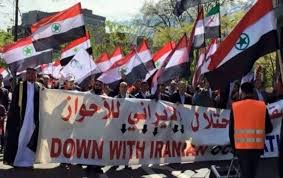......................................
Abstract: Since 2011, the Arab world has entered a period of political turbulence accompanied bywidespread growth of protest activity. The events that were metaphorically called the “Arab Spring”
referring to the “Spring of Nations” of 1848, affected virtually all countries of the Middle East and
North Africa. In Libya, Syria, and Yemen, antigovernment demonstrations led to almost complete
destruction of statehood raising the question of the existence of these political entities in their former
borders. Egypt and Tunisia ended up with a change in the ruling regimes that repeated many times.
The ruling elites of other Arab countries, having experienced the wrath of the Arab streets to varying
degrees, managed to stay in power. The “Arab Spring” events should be more adequately viewed in
the framework of “fitnah”, a form of protest traditional in the Arab-Muslim political culture. Indeed,
since the emergence of Islam, fitnah was one of the most common forms of protest activity in the
Middle East. However, in the last two centuries, it was replaced by “thaura” or the “revolution,” much
more common in the European mentality. While the term "fitnah" has mainly negative connotations,
“thaura” has been praised in every possible way and even became the basis for commemorative
practices. This paper makes an attempt to compare these two forms of protest in the Muslim world.
Keywords: fitnah; Muslim law; Western philosophy; protests; revolution; right to revolt
................
چکیده: از سال ،2011جهان عرب وارد دوره ای از آشفتگی سیاسی شده که با رشد فعالیت های اعتراضی
گسترده همراه گردیده است. این رویدادها که به اصطلاح "بهار عربی" نامیده می شود، به "بهارملت ها" در سال
1848برمی گردد که تمام کشورهای خاورمیانه و شمال آفریقا بطور مجازی متاثر از آن بودند. در لیبی، سوریه و
یمن، تظاهرات ضد دولتی که برخاسته از مسئلهی عدم تغییر نهادهای سیاسی پیشینیان بود، موجب تخریب
تقریبا کامل دولت گردید. انقلاب مصر و تونس با تغییر در رژیم های حاکم که بارها تکرار گردیدند به سرانجام
رسید. نخبگان حاکم دیگر کشورهای عربی که تجربه خشم اعراب را داشتند، توانستند قدرت خود را حفظ کنند.
رویدادهای "بهار عربی" را باید به شکل مناسبتری در چارچوب "فتنه" که روش سنتی اعتراض در فرهنگ
سیاسی مسلمانان عرب است، مورد توجه قرار داد. در واقع از زمان ظهور اسلام، فتنه یکی از اشکال متداولترین
فعالیت اعتراضی در خاورمیانه بود. هرچند در دو قرن اخیر"ثورا" یا "انقلاب" که در تفکر اروپایی متداولتر است،
جایگزین فتنه گردید. در حالیکه فتنه عمدتا دارای بار معنایی منفی است، ثورا در هر صورت تحسین شده و حتی
پایهی اقدامات بزرگداشتی بوده است. این مقاله درصدد مقایسه ی این دو روش اعتراض در جهان اسلام برآمده
است.
کلمات کلیدی : فتنه- حقوق مسلمان- فلسفه ی غرب- اعتراضات- انقلاب- حق شورش
